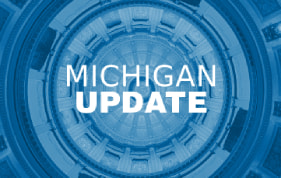This webinar was held on June 30, 2020.
In the midst of the COVID-19 pandemic, state and local governments and safety net providers are faced with a clear indication of disparities in population health outcomes and looming budgetary challenges across the nation. These entities are committed to their residents and are looking for creative strategies to mitigate health risks and deliver responsive health and human services despite budgetary challenges. As such, the role of the community health worker or the navigator rises to the top. Engaging and integrating trusted community health workers and other paraprofessionals is a promising, cost-effective and trust-building practice that can support the seamless dissemination of these essential services in these unprecedented times.
This webinar was the first in HMA’s Community Health Worker Series. During this webinar, HMA experts put forth a value proposition for the timely engagement and integration of community health workers/navigators/peer support specialists in the delivery of health and human services. Presenters provided several compelling case studies and three successful implementation models for integrating paraprofessionals into the delivery system. Participants learned how community health workers are poised to support the unique needs of residents in urban, suburban, rural, and public health and human services settings. Finally, respondents reflected on the paraprofessional role from a social determinants of health standpoint and from the perspective of minority populations and their communities.
Learning Objectives:
- Understand the role community health workers and other paraprofessionals can play in the health and human services workforce in the COVID-19 era.
- Learn how select states explored the certification, education, financing and roles of community health workers and other paraprofessionals when integrated into specific health and human services.
- Find out how to build trust in minority communities, incorporating social determinants of health in the COVID-19 recovery response at the crossroads of health disparities and racial inequities.
HMA Speakers
Uma Ahluwalia, Principal, Washington, DC
Heidi Arthur, Principal, New York, NY
Stephanie Denning, Principal, Denver, CO
Julia Elitzer, Senior Consultant, San Francisco, CA
Iliana Gilman, Principal, Austin, TX
Catherine Guerrero, Principal, Denver, CO
Lori Weiselberg, Managing Principal, Chicago, IL
Reference Materials:
The National Academy of State Health Policy (NASHP) has a great website of state CHW models: https://www.nashp.org/state-community-health-worker-models/
The Association of State and Territorial Health Officials (ASTHO) features tools and information about CHWs at: https://www.astho.org/Community-Health-Workers/
There is also a helpful image describing the ever-changing picture of state approaches to CHW certification as well: https://www.astho.org/Programs/Clinical-to-Community-Connections/Documents/Map-of-State-Approaches-to-CHW-Certification/
Multnomah County training: https://multco.us/health/community-health/community-health-worker-training
SAMHSA has great resources: https://www.samhsa.gov/brss-tacs/recovery-support-tools/youth-young-adults
https://www.ncbi.nlm.nih.gov/pmc/articles/PMC6703286/
https://www.ncbi.nlm.nih.gov/pmc/articles/PMC3343233/
The VT interview is the March 4, 2020 podcast. https://www.aha.org/advocacy/small-or-rural/rural-report-podcast-series




